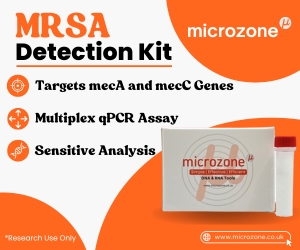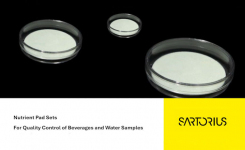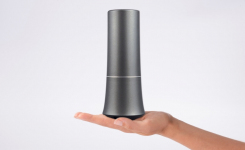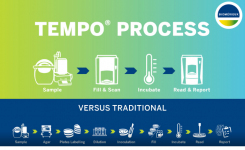FDA Clearance for Pathogen ID in 90 Mins from Positive Blood Cultures
go back to news archives| | AdvanDx has received FDA 510(k) clearance for a fast, 90 minutes protocol for its E. coli/P. aeruginosa PNA FISH® and EK/P. aeruginosa PNA FISH® tests. The faster protocol reduces the PNA FISH turn-around time from the original 2.5 hours to 90 minutes by reducing PNA probe hybridization from 90 minutes to 30 minutes. |
Clinical validation studies performed at hospitals in the United States demonstrated 100% equivalence between the 90 minutes protocol and the original PNA FISH protocol, ensuring the faster protocol maintains the very high sensitivity and specificity required versus slower, conventional methods. 'Gram-negative bloodstream infections can be very difficult to treat, especially due to the highly variable antimicrobial resistance patterns associated with different species. The ability of the PNA FISH assay to identify Pseudomonas aeruginosa in contrast to Escherichia coli and Klebsiella pneumoniae directly from a positive blood culture within 90 minutes, can lead to the initiation of pathogen-specific empiric antimicrobial regimens. This assay can have a real-time, positive impact on patient therapy and management.' said Dr. Phyllis Della-Latta, Professor of Clinical Pathology in Medicine and Director of Clinical Microbiology Service at Columbia University Medical Center, New York-Presbyterian Hospital (New York, NY). Every year, an estimated 100,000 patients develop bloodstream infections (BSI) due to Gram-negative pathogens such as Escherichia coli, Klebsiella pneumoniae and Pseudomonas aeruginosa. Gram-negative bloodstream infections are associated with mortality rates as high as 40% and can be difficult to treat due to increasing resistance to antimicrobial agents, especially for P. aeruginosa.1 Treatment challenges are further compounded by conventional laboratory testing methods that take 24 to 48 hours or longer to identify the causative pathogen, forcing clinicians to treat patients empirically with antibiotics that may or may not cover for P. aeruginosa. As the first FDA cleared rapid, molecular tests for Gram-negative bloodstream infections, E. coli/P. aeruginosa PNA FISH and EK/P. aeruginosa PNA FISH are vital new tools that enable microbiology labs to provide Gram-negative species identification in hours, instead of days to help physicians and pharmacists optimize antibiotic therapy earlier. Clinical studies have shown that delays in appropriate therapy for P. aeruginosa are associated with increased mortality rates of up to 72%. Given that up to 30% of patients with P. aeruginosa receive inappropriate coverage, early administration of effective pseudomonal therapy is crucial to improving patient outcomes.2,3 At the same time, unnecessarily broad-coverage for less resistant and less virulent pathogens should be avoided in order to prevent the development and spread of antibiotic resistant pathogens. With the introduction of the 90 minutes PNA FISH protocol, laboratories will be able to further improve turn-around times for critical results and thereby help clinicians further improve pseudomonal vs. non-pseudomonal antibiotic selection for patients with Gram-negative bloodstream infections. 'We are very excited to continue the speedy transition of our PNA FISH tests to the 90 minutes protocol in the United States,' said Thais T. Johansen, President and CEO of AdvanDx. 'The FDA clearances for both the E. coli/P. aeruginosa PNA FISH and EK/P. aeruginosa PNA FISH tests brings AdvanDx a step closer to providing accurate and actionable results in just 90 minutes for the most critical bloodstream pathogens,' Johansen concluded. References: 1. Kang et al. Antimicrobial Agent and Chemotherapy. 2005 Feb; 49:760-766 2. Micek et al. Antimicrobial Agents and Chemotherapy. 2005;49(4):1306-11 3. Kumar et al. Chest. 2009;136: 1237-48 |
NOTE: This item is from our 'historic' database and
may contain information which is not up to date.
Source : AdvanDx View archived contact details
Posted on December 22, 2009

















